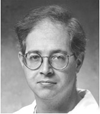Florida seems to be the epicenter of criminal medicare fraud AND problematic prescription of opiate painkillers, at least according to these two news items:
http://news.yahoo.com/s/nm/20110413/ts_nm/us_usa_healthcare_fraud
http://news.yahoo.com/s/ap/20110419/ap_on_he_me/us_pill_mills_us_response
The first elaborates on a theme that has been clear from previous news items and posts on real medicare fraud: Florida seems to be an epicenter. It may be a consequence of better surveillance, more aggressive investigation, or it just may be that there is more medicare fraud in Florida than in much of the rest of the US. This is an enforcement effort that is welcomed by everyone else in the health care system, including physicians and patients, as fraud on this scale sucks resources from the system sufficient to make providing real care to real patients more difficult. The first news item does make it clear that, historically, it has been fairly easy to defraud medicare.
The second news item deals with one of the dark underbellies of medicine: the rampant abuse of prescription opiates(interestingly, benzodiazepines are not presently on anyone's radar). As with medicare fraud, it seems that this is also an activity for which Florida is an epicenter. While Florida has a disproportionate number of elderly residents, I doubt that this alone explains the fact that 85% of all oxycodone in the US is prescribed there. Unlike outright medicare fraud, it is easy for a private practice doc, especially a pain doc, to fall into the trap of running a pill mill. Why? There is no objective evidence of pain: you have to accept what your patient self-reports. Pain treatment is often not covered by insurance, hence many pain patients pay cash on the barrel for monthly visits, which is very attractive in a world awash in insurance paperwork and payment denials. Patient satisfaction drives prescription as well: patients, including drug-seekers, give very low marks to physicians who undertreat or don't treat their pain. Being liberal with opiates can only help your satisfaction scores, being stingy can only hurt them. Sadly, all of this has produced a situation where physicians, especially those who specialize in pain, legally prescribe to drug-seeking individuals opiates that they previously obtained illegally. If what my colleagues tell me is true, then there are physicians out there who run pill-mills, knowing full well that a large percentage of their 'patients' are full of BS, and that much of what they prescribe is being diverted. It only takes a few such pill-mills to generate huge problems. These bad actors are likely to make life ever more difficult for the honest pain docs in the next few years, especially as enforcement efforts like this ramp up.
It is difficult, and usually impossible, for the prescribing physician to tell which of their patients is diverting, and which among them simply has terrible pain. In an era where pain is the 5th (or 6th) vital sign, being liberal with opiates to treat it (as all authorities have exhorted all physicians to do) can put practitioners in regulatory and legal peril. And yet, in our midst are physicians whose business and ethics are indistinguishable from a street-corner drug dealer.
 Mitch Keamy is an anesthesiologist in Las Vegas Nevada
Mitch Keamy is an anesthesiologist in Las Vegas Nevada
 Andy Kofke is a Professor of Neuro-anesthesiology and Critical Care at the University of Pennslvania
Andy Kofke is a Professor of Neuro-anesthesiology and Critical Care at the University of Pennslvania
 Mike O'Connor is Professor of Anesthesiology and Critical Care at the University of Chicago
Mike O'Connor is Professor of Anesthesiology and Critical Care at the University of Chicago
 Rob Dean is a cardiac anesthesiologist in Grand Rapids Michigan, with extensive experience in O.R. administration.
Rob Dean is a cardiac anesthesiologist in Grand Rapids Michigan, with extensive experience in O.R. administration.